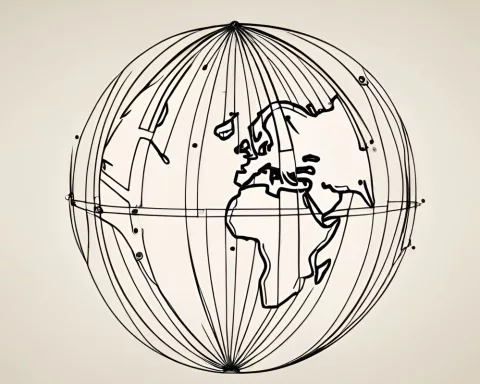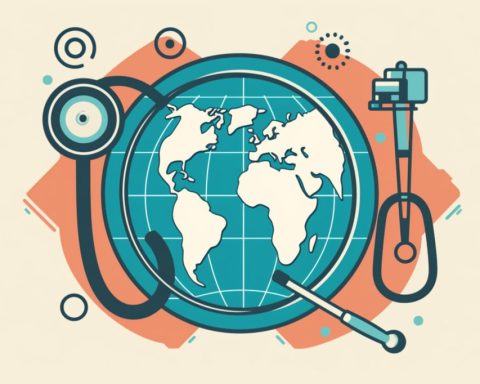PEPFAR, the US President’s Emergency Plan for AIDS Relief, is a crucial program that started in 2003 to fight the AIDS epidemic, especially in Africa. It has provided life-saving treatments and education, saving many lives over the years. However, recent funding disruptions have put this success at risk, causing many health centers in South Africa to close or reduce services. These challenges threaten not only individual health but also the progress made against HIV, showing how important it is to keep global health efforts strong and steady.
What is PEPFAR and why is it important?
PEPFAR, the US President’s Emergency Plan for AIDS Relief, is a vital initiative launched in 2003 to combat the AIDS epidemic, especially in sub-Saharan Africa. It provides life-saving antiretroviral treatments and promotes education and prevention, significantly reducing HIV infections and related deaths.
The Genesis and Impact of PEPFAR
In the landscape of global health, the US President’s Emergency Plan for AIDS Relief, widely known as PEPFAR, stands out as one of the most significant initiatives to combat the AIDS epidemic. Launched in 2003, this program aimed to address the widespread devastation AIDS caused, with a particular focus on sub-Saharan Africa. At its core, PEPFAR was designed not only to prevent the transmission of HIV but also to provide life-saving antiretroviral (ARV) treatments to millions of people in dire need. Over the years, it has become a symbol of international humanitarian commitment, saving countless lives and transforming health outcomes in severely impacted regions.
PEPFAR’s approach was innovative and multifaceted. By mobilizing vast resources and partnering with local communities, it catalyzed a significant decline in HIV infections and AIDS-related deaths. The program’s success lay in its ability to adapt to the unique epidemiological and social contexts of each region. Its interventions were not limited to treatment alone; they also encompassed education, prevention, and strengthening of healthcare systems, thereby creating a holistic response that became a model for other global health initiatives.
However, despite its impressive track record, PEPFAR’s recent journey reveals a series of challenges that threaten to undermine its achievements. South Africa, a major beneficiary of the program, now finds itself at the center of an unsettling disruption, as political and administrative shifts in the United States introduce uncertainties that could have profound implications for the future of HIV/AIDS interventions in the region.
Funding Disruptions and Their Impact
The recent turbulence surrounding PEPFAR can be traced back to its funding structure, which heavily relies on the support of American institutions such as the United States Agency for International Development (USAID) and the Centers for Disease Control and Prevention (CDC). These agencies have historically played a crucial role in channeling billions of dollars into HIV/AIDS programs globally. However, in January, an executive order issued by President Donald Trump resulted in an unexpected pause in these funding streams, as USAID and the CDC temporarily halted their support for a 90-day review period.
This sudden interruption sent shockwaves through South Africa’s healthcare system. PEPFAR-funded organizations found themselves in a precarious position, with operations grinding to a halt. Clinics and health centers, once bustling with activity, faced closures, unable to deliver vital services such as ARV distribution and preventive measures like Pre-exposure Prophylaxis (PrEP). The interruption in services not only jeopardized the health of individuals but also threatened to reverse progress made in reducing HIV transmission rates.
Despite a court order that mandated the resumption of funding, many organizations continue to struggle. USAID has issued waivers intended to mitigate the impact, but these have fallen short of restoring full operations. Organizations are caught in a limbo, forced to submit revised budgets and proposals that linger in bureaucratic processes, with no clear timeline for resolution. The prolonged uncertainty has left them juggling limited resources while the health of their clients hangs in the balance.
Frontline Challenges and Community Impact
Investigative reports from GroundUp and Spotlight reveal the stark reality faced by health centers that once thrived under PEPFAR support. In Johannesburg, the OUT LGBT Wellbeing clinic, which served a key demographic of men who have sex with men, now stands as a stark reminder of the challenges facing targeted health initiatives. The clinic’s closure left staff without pay and clients without access to critical ARV treatments. This scenario not only endangers individual health but also heightens the risk of drug-resistant HIV strains emerging, posing a broader public health threat.
Similar stories echo across the country. The WITS Reproductive Health Institute (RHI) in Hillbrow and the Ivan Toms Centre for Health in Cape Town, both of which provided comprehensive HIV and TB services, now display notices of temporary closure. These centers were lifelines for high-risk populations, including sex workers and transgender individuals, offering both treatment and preventive care. The inability to maintain services jeopardizes the health and well-being of these communities, potentially eroding years of progress in HIV prevention and care.
Organizations like NACOSA, which focuses on aiding orphaned and vulnerable children affected by HIV, also grapple with the fallout from the funding hiatus. Dr. Ntlotleng Mabena from NACOSA emphasizes the crucial role these programs play in not only delivering health services but also providing psychological support and social stability for children. Yet, despite efforts to adapt by submitting revised budgets, NACOSA finds its operations stalled, awaiting approval that remains elusive. The interruption of these services underscores the wider societal impact of the funding disruptions, affecting not just health outcomes but also the social fabric of communities.
Navigating a Complex Future
While the CDC has managed to resume some of its operations following a temporary restraining order from a federal judge, the broader landscape remains fraught with challenges. The intricate web of legal and administrative hurdles illustrates the complexity organizations face in navigating the current crisis. Though the US embassy in South Africa asserts that PEPFAR services should be unaffected, the reality on the ground paints a different picture. The dissonance between official assurances and operational realities underscores the fragile nature of global health initiatives amid shifting political dynamics.
Historically, PEPFAR has exemplified the power of international cooperation in addressing public health emergencies, blending political resolve with scientific advancements and humanitarian dedication. However, the recent disruptions highlight the vulnerability of such endeavors to political and administrative changes. As stakeholders await clarity and resolution, the health and well-being of many individuals remain precariously poised, emphasizing the urgent need for a restoration of funding stability and a reevaluation of global health diplomacy mechanisms.
In the face of these challenges, the PEPFAR saga serves as a poignant reminder of the importance of sustained international partnerships and the delicate balance required to maintain progress in global health initiatives. As the world watches and waits, the lessons learned from this episode will undoubtedly shape the future trajectory of efforts to combat HIV/AIDS and other public health crises worldwide.
FAQ about PEPFAR
What is PEPFAR and why is it important?
PEPFAR, or the US President’s Emergency Plan for AIDS Relief, is a vital initiative that was launched in 2003 to combat the AIDS epidemic, particularly in sub-Saharan Africa. It provides life-saving antiretroviral treatments and promotes education and prevention strategies, significantly reducing HIV infections and related deaths. Its importance lies in its ability to mobilize resources and foster partnerships that result in tangible health improvements.
How has PEPFAR impacted the fight against HIV/AIDS?
Since its inception, PEPFAR has played a critical role in combating the AIDS epidemic by providing antiretroviral therapies to millions, contributing to a substantial decline in HIV infections and AIDS-related deaths. The program has also focused on community-based education and prevention efforts, strengthening healthcare systems, and addressing the unique challenges faced by different populations affected by HIV.
What recent challenges has PEPFAR faced?
PEPFAR has recently encountered significant challenges due to funding disruptions caused by political and administrative changes in the United States. An executive order in January paused funding from key agencies like USAID and the CDC, leading to the closure of many health centers in South Africa. This interruption has jeopardized both individual health services and broader public health progress in combating HIV/AIDS in the region.
How have the funding disruptions affected health services in South Africa?
The funding disruptions have led to the closure or reduction of services in many PEPFAR-supported health centers, such as the OUT LGBT Wellbeing clinic and the WITS Reproductive Health Institute. Patients have lost access to critical HIV treatments and preventive services like Pre-exposure Prophylaxis (PrEP), increasing the risk of drug-resistant HIV strains and undermining years of progress in HIV prevention and care.
What are the broader societal implications of PEPFAR’s challenges?
The interruption of PEPFAR services has far-reaching societal implications. Organizations that support vulnerable populations, such as orphaned children affected by HIV, are struggling to maintain their operations and provide essential services. The funding hiatus not only threatens health outcomes but also impacts the social stability and psychological support these communities depend on, potentially eroding the fabric of society.
What is the future of PEPFAR amid these challenges?
While some operations have resumed following legal interventions, the future of PEPFAR remains uncertain due to ongoing political dynamics and bureaucratic hurdles. The situation underscores the need for sustained international partnerships and a reevaluation of global health diplomacy mechanisms. The lessons learned from this crisis will be crucial for shaping future efforts to combat HIV/AIDS and other public health challenges worldwide.












